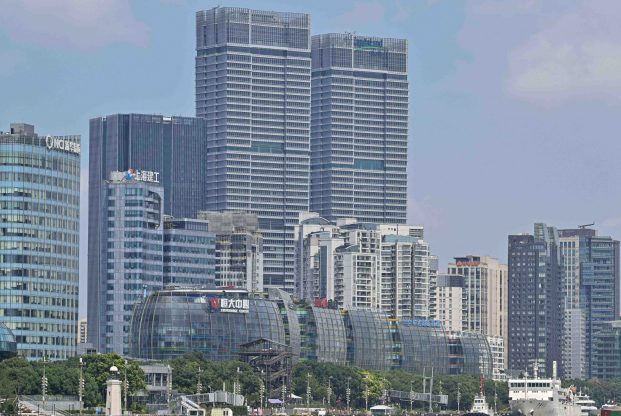Chinese officials plan to ease share financing rules for certain real estate-related firms, but analysts say it will be at least another year before the property sector even has a chance to emerge from its dire situation.
The outlook remains bleak due to a mortgage boycott by homebuyers across the country, debts in the hundreds of billions of dollars, including a spate of defaults by developers, plus Covid restrictions and a faltering economy.
On Friday, the China Securities Regulatory Commission (CSRC) said it would allow certain companies with small property interests to raise money by selling A-shares, but the proceeds cannot be invested in the real estate business, China Securities Journal reported.
For eligible companies, real estate must not be their core business, and should not contribute more than 10% of their profit, according to the article.
China has barred its property firms or property-related firms from financing via the domestic A-share market since end-2018, including both IPOs and additional or follow-up share sales.
Some property shares in China jumped on Friday after state media announced the CSRC news, partly because it spurred hope of more measures to aid the struggling sector.
Companies with real estate-related businesses, including Zhongtian Financial Group, Jinan high-tech development and Shenzhen New Nanshan Holding Group, saw their shares surge between 3% and 10%.
Analysts say these companies will likely benefit directly from the rule changes. They said the move could aid companies having difficulty obtaining financing via other channels, and allow them to invest in other areas of the economy.
CSRC did not immediately respond to a request for comment.
ALSO SEE:
China Faces Largest Outflows Since 2016 as Investors Eye US Rates
Mountains of Debt
But analysts noted that while the move is a positive signal, what the sector needs most is an improvement in home buyer sentiment.
“This is the latest policy gesture… to stabilise the embattled sector, with the focus on striking a balance between reviving the market and defusing contagion risk,” Bruce Pang, chief economist at Jones Lang Lasalle, said.
“More time and more help is needed for developers to start to have a positive cash flow. What’s more important is to move forward with sales and that depends on individual home buyers’ expectations and confidence not only on the housing market, but also in the overall economic growth of the country.”
China’s central bank and banking regulator have taken steps to ease liquidity pressure in the property sector, where many companies are suffering from slumping investment and sales on top of mountains of debt.
Beijing is also seeking to stabilise markets during the ongoing, politically important Communist Party Congress.
The property sector is crucial to China’s political and economic stability, with real estate accounting for around 40% of household assets, according to analysts, and making up around a quarter of the country’s gross domestic product, the largest among all sectors.
However, there are few signs that the market will bottom out in the near term due to multiple adverse factors, including authorities’s perseverance with tough anti-Covid restrictions.
“The resolution of China’s property crisis will require the state to shoulder the losses of insolvent developers, Julian Evans-Pritchard, Senior China Economist at Capital Economics, said in a research note on Friday.
Even under an optimistic scenario, “construction activity is unlikely to pick up much before 2024,” he said.
- Reuters with additional editing by Jim Pollard
NOTE: This report was updated with further details and the headline changed on October 21, 2022.
ALSO SEE:
Japan’s Inflation Hits 8-Year High, Tests BOJ’s Soft Policy
China Property Bonds Being Shunned Over Default Danger
Chinese Banks Brace For Massive Hit As Homebuyers Refuse To Pay Loans
























